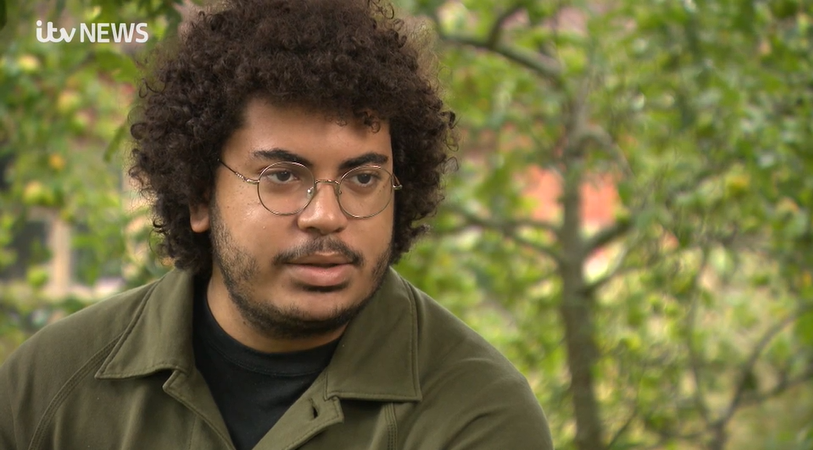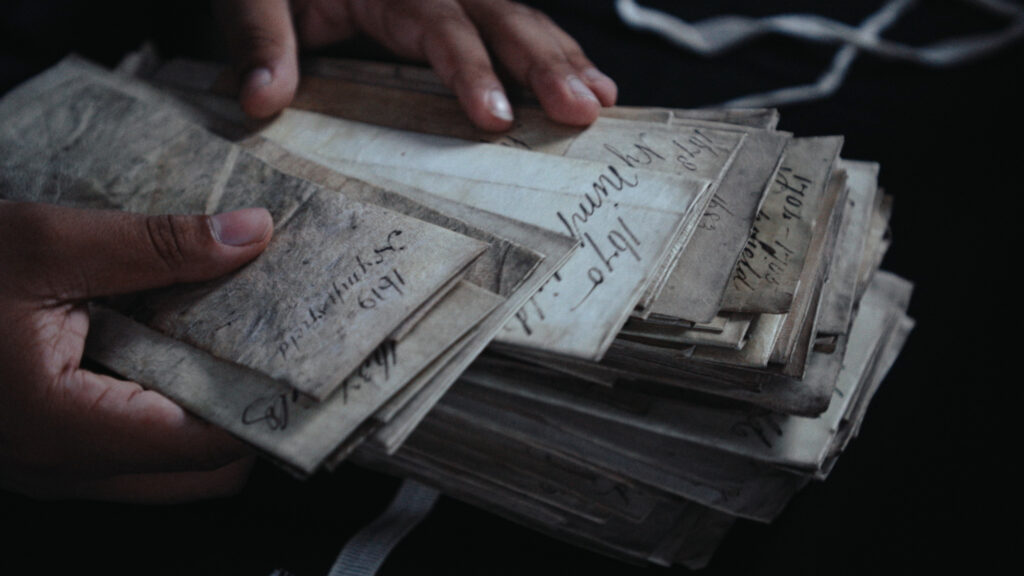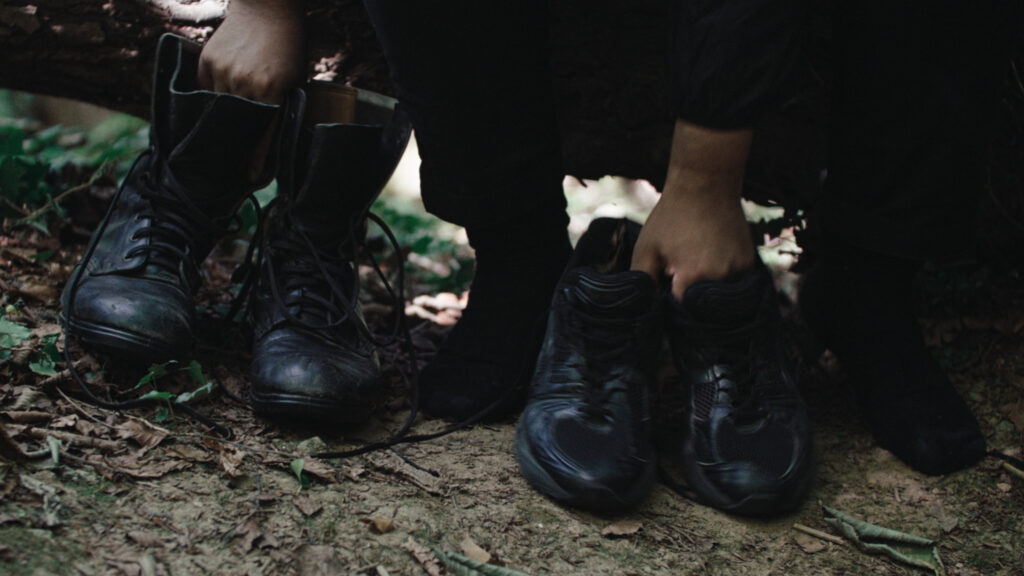On Stepping in Front of the Camera by Dan Guthrie

In 2021, artist-filmmaker Dan Guthrie began speaking out about a racist relic in Stroud town centre, eventually joining a council-led consultation to champion its removal. In this post, he reflects on his experiences in front of the news cameras and how they led him to centre himself in the making of black strangers, his film for Right of Way.
When I started making films I never intended to step in front of the camera, but all that changed when I became part of a council-led consultation in my hometown of Stroud which assessed, amongst other things, people’s opinions of a statue on the side of a building called the Blackboy Clock.
The consultation soon gained media attention because of the controversial statements made by my local MP in line with the government’s ‘retain and explain’ approach to contested heritage. My inbox began to fill up with emails from journalists wanting to present another side of the ‘culture war’ debate on screen. Not wanting my MP’s views to go unchallenged, I ended up accepting most requests.

To me, filming felt a bit like a job interview — with the added pressure of knowing that afterwards, other people would see what I’d said. I always got nervous waiting for the crew to arrive, but once the equipment was set up and things got underway, it was smooth sailing. The weirdest part was watching the final reports on TV, as 20 minutes of talking got chopped down to around 20 seconds of screen time and I watched myself saying things I didn’t even remember thinking in the moment.
My news segment soundbites weren’t going to bag me any awards (well, definitely not with right-wing comments sections!) but every time I did another interview I was more comfortable with hearing and seeing myself on screen, which felt like a win to me. So when I started working on black strangers for the Right of Way programme, I knew that I had become confident enough to make myself audible and visible within my own work for the first time.
The contents of this film are very personal, and it feels like a story that only I can tell
In the film, I go for a walk in search of Daniel, a namesake buried in Nympsfield on the 31st of December 1719 and described on official records as ‘a black stranger’, attempting to follow in his footsteps and relate to him somehow.
I chose to work with a group of talented friends and collaborators on this project — Nielsan, Conrad, Mae-Li and Elizabeth — rather than a crew of unknowns so that I could feel as comfortable possible during production.

In fact, I’m really glad I did because they helped me to stay sane when, as a result of the consultation’s outcome, a far-right group threatened to come to Stroud on shoot day. As we joked on the day, I’d rather have a friend than a foe pursue me through the woods with a camera!
Having full control over post-production, I chose to keep a lot of the physical and verbal rambling we recorded in the final film. In particular, I wanted to show a level of emotion that I felt was missing from the tightly edited news segments. Being on-screen is something I wouldn’t normally choose to do, but it’s definitely something I want to embrace from now on.
The contents of this film are very personal, and it feels like a story that only I can tell, so by putting myself at the centre of it I hope I’ve communicated a vulnerability that resonates and connects with audiences.
Dan Guthrie is an artist-filmmaker, film programmer and writer whose practice often explores
representations and mis-representations of Black Britishness, with an interest in examining how
they manifest themselves in rural areas. black strangers was commissioned by the
Independent Cinema Office and LUX for the Right of Way programme which is currently touring
venues across the UK.
